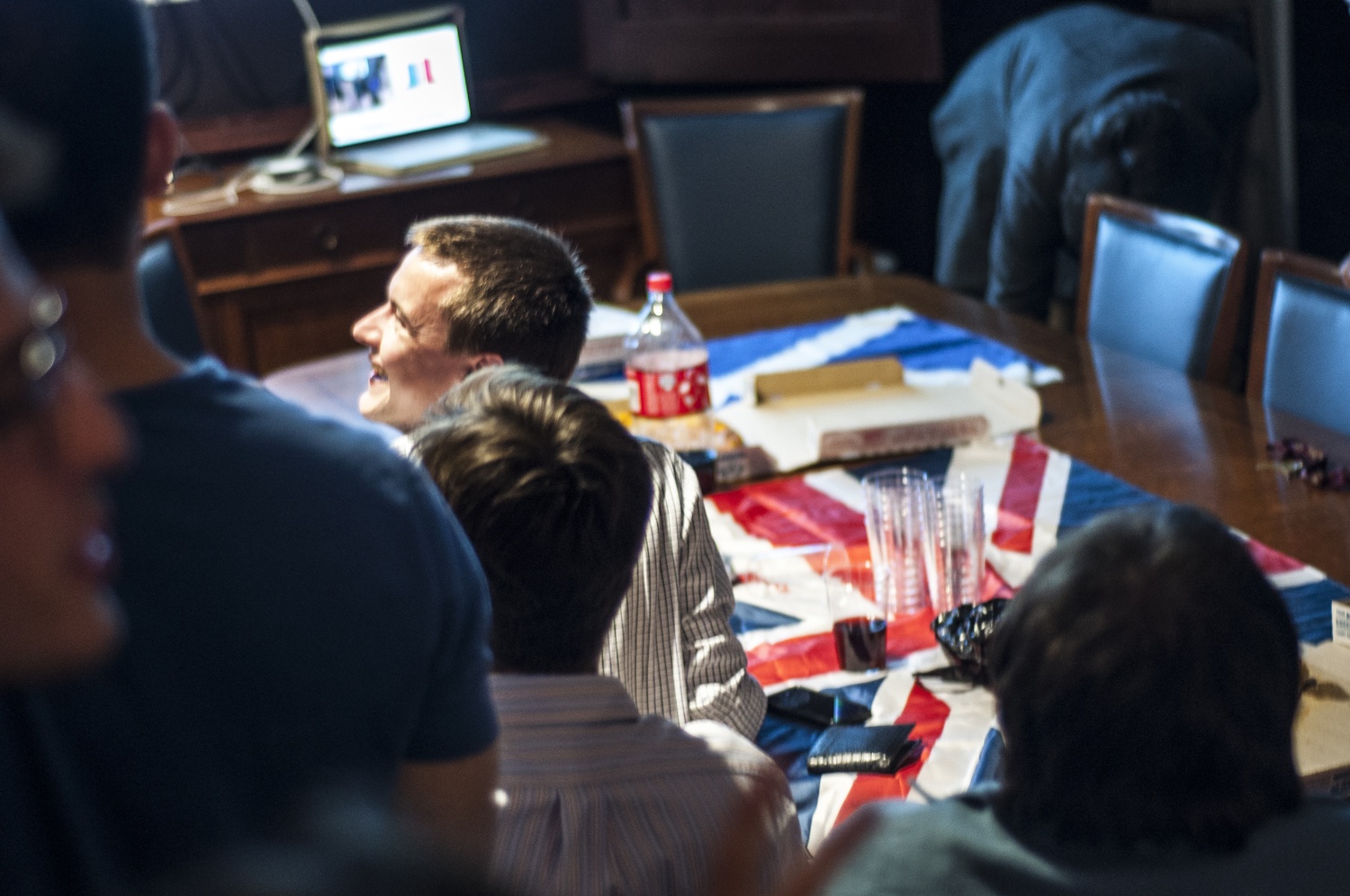
News
Harvard Grad Union Agrees To Bargain Without Ground Rules

News
Harvard Chabad Petitions to Change City Zoning Laws

News
Kestenbaum Files Opposition to Harvard’s Request for Documents

News
Harvard Agrees to a 1-Year $6 Million PILOT Agreement With the City of Cambridge

News
HUA Election Will Feature No Referenda or Survey Questions
Scotland Referendum Divides Harvard's Britons
Harvard undergraduates and faculty members were as divided as the Scottish electorate going into Thursday’s referendum on Scotland’s independence, but, once the votes were counted, those in favor of a unified United Kingdom were left to celebrate.
The referendum, which was mandated after the pro-independence National Party won the 2011 Scottish Parliament election, received worldwide attention after a poll indicated that 51 percent of Scots planned on voting ‘yes’ in the referendum. On campus, that prospect spawned a flurry of op-eds, watch parties, and strong feelings among one of Harvard’s largest populations of international students.
On Thursday night, members of the Harvard British Club, gathered in the Leverett House Senior Common Room, to watch the results roll in. Anti-independence students celebrated with each successive county that voted down the measure.
Those Harvard affiliates voting ‘no’ said they feared Scottish independence would bring economic unrest and destroy the shared historic, political, and cultural connection between Scotland and the rest of the United Kingdom.
“I think we are much better with all the resources the UK offers,” said Hannah R. Phillips ’15 of Scotland, whose mother voted for her by proxy. “I think the Nationalist Party would not be good for the people of Scotland. It would exacerbate inequality, and the cost of living would go up.”
Phillips, who worked on the Labor Party campaign in Scotland this summer, said the tensions were high throughout the country.
“It was very heated, dividing families, dividing friend groups,” she said. “It’s the main topic of conversation between people.”
Scottish nationalists at Harvard, on the other hand, who were advocating for the ‘yes’ vote, said they hoped that an independent Scotland would stay out of foreign wars, protect public services, and maintain a government that pays attention solely to Scotland.
“I voted ‘yes,’ but it’s actually not particularly in my self-interest,” said Charlotte L. McKechnie ’15. “My life will not be particularly easy with a ‘yes’ vote, but for me that doesn’t matter. What matters is what Scotland will look like in 100 years, and what this symbolizes: a nation coming together and standing up for itself, and that’s incredible and inspiring.”
Most citizens in the other three countries in the United Kingdom—England, Wales and Northern Ireland—hoped Scotland would reach a ‘no’ vote, and this Cambridge seemed to follow its older sibling.
“I think English people are very confused about why so many Scottish under the age of 35 think that they cannot be both Scottish and British,” said Briton Nicholas J. Bonstow ’17, a Crimson blog editor, who anticipated a ‘yes’ vote. “We in England think we can be English and British.”
Several Harvard faculty members, though divided on the issue, took a more neutral approach when analyzing the vote.
“There are ways in which Scotland will be stronger and will have a huge amount of say in the United Kingdom,” History lecturer Heidi J. Tworek, who is British, said of the prospect of rejecting independence. “There are some grievances that may be seen as justified, but there are ways in which we can accommodate them within the integration.”
Thomas Weber, a fellow at the Center for European Studies and another Briton, agreed.
“The status quo will change anyway because since about a week and a half ago, the leaders the biggest British parties made a commitment to defer the devolution to what’s called devolution max,” he said.
—Staff writer Mariel A. Klein can be reached at mariel.klein@thecrimson.com. Follow her on Twitter @mariel_klein.
Want to keep up with breaking news? Subscribe to our email newsletter.
Most Read
- Harvard’s Hyperfixation on Israel Is Academically Unserious
- Harvard Police Union Overwhelmingly Votes No Confidence in HUPD Chief Clay
- Trump Administration Conditions Harvard’s Funding on Eliminating DEI, Restricting Protests
- Facing Trump’s Ultimatum, Harvard Has No Easy Choices
- House Door Boxes Elicit Backlash Over Conservative Student Publication

